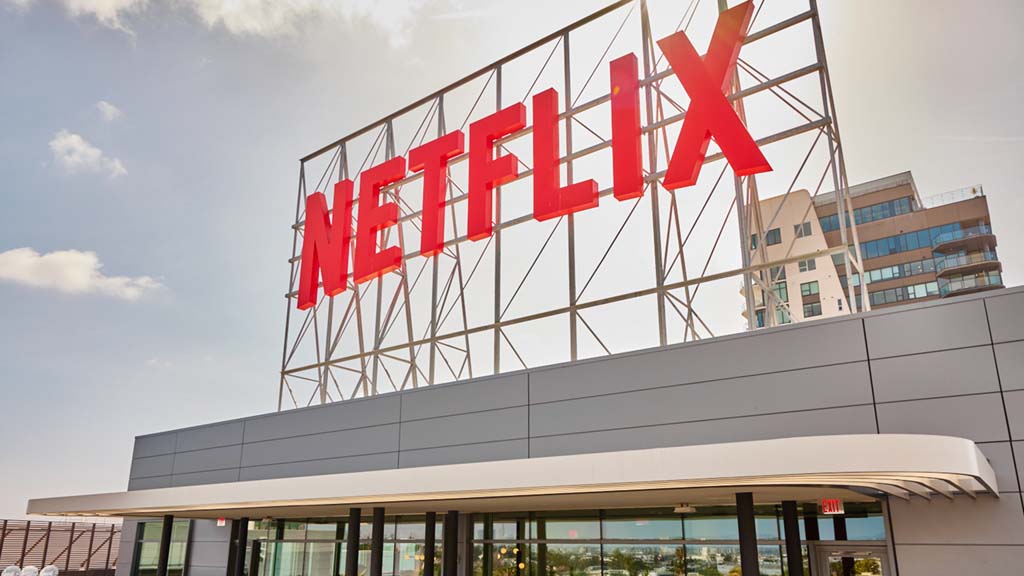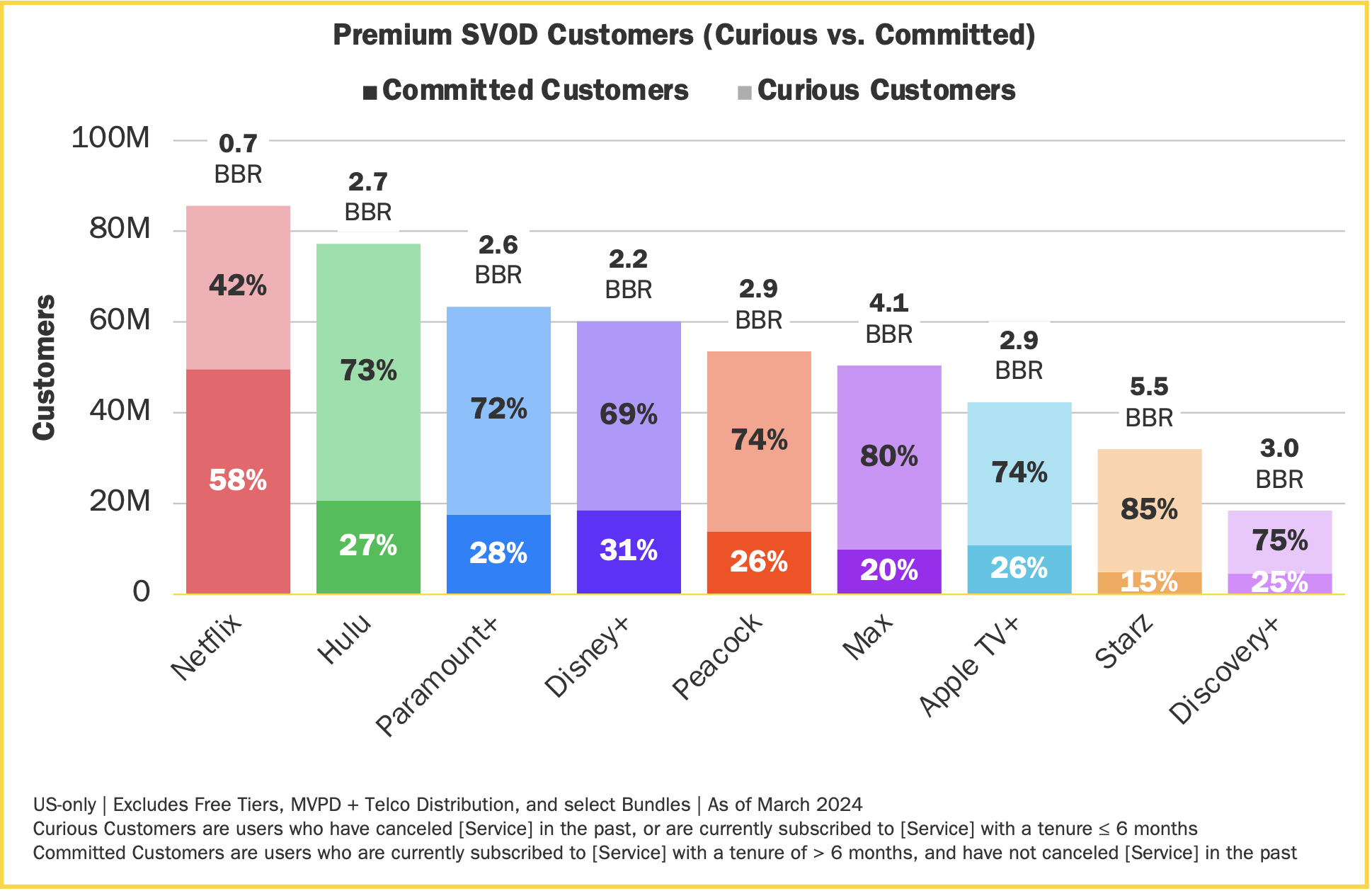
The smarter way to stay on top of the streaming and OTT industry. Sign up below.
You are now subscribed
Your newsletter sign-up was successful
Netflix said in last Thursday’s Q2 letter to shareholder’s that it won’t be taking part in the increasingly common practice of bundling its service with subscription streaming competitors.
“We haven’t bundled Netflix solely with other streamers like Disney Plus or Max because Netflix already operates as a go-to destination for entertainment thanks to the breadth and variety of our slate and superior product experience,” Netflix said in the letter.
This position jibes with data released last month by Antenna suggesting service bundling presents more of a "cannibalization risk" to Netflix vs. other streaming companies.
Also read: Disney Bundle Cuts Hulu Churn Nearly in Half (Charts of the Day)
In the Q2 version of its State of Subscription report, published last month, Antenna tracked the effectiveness of bundling by measuring the ratio of customers who are "curious" about seeing other streaming services, vs. "committed" customers.
Also Read: Netflix Solidly Beats Revenue Forecasts With 17% Growth in Q2, Adds More Than 8 Million Subscribers
To differentiate between potentially productive bundles and what Antenna calls “cannibalistic” bundle opportunities, it’s important to determine whether both services have a large enough pool of curious customers.
The smarter way to stay on top of the streaming and OTT industry. Sign up below.
According to Antenna, if one service has a greater ratio of committed customers compared to its partner, the bundle presents a cannibalization risk to the service with fewer curious customers.
And Antenna’s report says that Netflix boasts the highest percentage of committed customers, with 58%.
It’s also the only premium SVOD with more committed customers than curious ones.
That’s likely why Netflix’s has avoided partnerships involving just fellow streaming services, favoring instead collaboration with internet service providers to avoid crossing customer bases.
Just last week, Verizon unveiled a new bundling promotion for its home and wireless internet customers, offering them a year free of Netflix Premium if they also pay for Peacock Premium.
The difference between these bundles and Antenna’s “potentially cannibalistic” partnerships is that they run through internet providers rather than directly with Netflix’s curious-customer-rich streaming competitors.
Jack Reid is a USC Annenberg Journalism major with experience reporting, producing and writing for Annenberg Media. He has also served as a video editor, showrunner and live-anchor during his time in the field.

